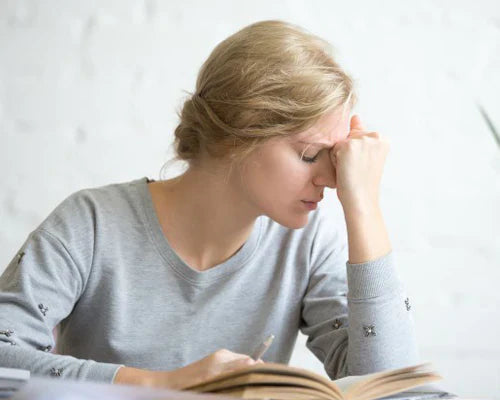Anemia & Periods

Do you frequently feel tired and weak? Are your periods heavier than normal? If you encounter with such problems in your lives, then you might be suffering from iron deficiency anemia. Iron Deficiency Anemia is a common condition, where you have a low amount of red blood cells or not enough hemoglobin in the blood. Hemoglobin is an iron-containing protein within your blood cells. With fewer red blood cells, your body cannot receive enough oxygen and function optimally.
Red blood cells are made in your bone marrow and have a lifespan of approximately 110 days, during which they circulate and deliver gases throughout the body. Any interference along the life cycle of the red blood cell could lead you to iron deficiency anemia. Common causes of Iron deficiency Anemia include: fatigue, unusual tiredness, paleness of skin or dry and damaged hair and skin. All these common symptoms are experienced by an anemic patient.
Anemia
Anemia is a broad topic to be discussed. It has many different causes and manifestations. Let us focus on the condition of iron deficiency anemia- which is related to menstruation and gynecological health.
Women who menstruate are disproportionately affected by anemia due to the fact that they lose blood through their periods. When blood is lost every month during menstruation, the iron within those red blood cells is also lost. If iron absorption or intake does not replace the iron lost during menstruation, you can end up with iron deficiency anemia.
Women with heavy menstrual bleeding are more prone to iron deficiency anemia. One is said to have a heavy menstrual flow when they lose over 80ml menstrual blood. Some causes of a heavy menstrual period can be attributed to abnormal growth of muscle tissue on your uterus or cervix or endometrial tissue invading the muscular wall of the uterus or bleeding disorders.
Not only menstruation, but pregnancy and lactation or any kind of growth or development in a woman’s body requires more iron. A pregnant lady has to make sure that they have an adequate level of iron in their body. The low level of iron can harm both mother and child. She has to have 2 to 3 times the normal amount of iron a non-pregnant lady has. Blood loss during childbirth can further contribute to iron deficiency anemia.
Heavy menstrual bleeding is a common problem, it affects nearly one in seven women. It is a big concern, but many women with heavy menstrual bleeding do not recognize their bleeding as unusual. Excessive bleeding can result in iron deficiency anemia, which in turn can lead you to serious medical problems and puts a great impact on a woman’s quality life.
To tackle this condition one can go for a diet based treatment. The best diet plan for anemia includes foods rich in iron and other vitamins essential to hemoglobin and red blood cell production. It should also include foods that help your body absorb iron better. The Anemia treatment plan requires 150 to 200 milligrams of iron daily. It is hard to get these levels through diet alone. You may also need to take a prescription iron or an over-the-counter iron supplement until your levels are replenished.
Popular Posts

Ayurvedic Benefits of Herbal Tea: Digestive, Calming & Balancing
03 Feb, 2026Your cup of calm! Herbal teas are infused with the goodness of herbs, flowers, roots and spices. ...
Read more
Choosing the Right Detox Based on Your Ayurvedic Body Type
30 Jan, 2026The fundamental truth of the human condition is that no two bodies function the same way. Based o...
Read more
Ayurvedic Detox Diet Tips and Recipes You Can Easily Make at Home
29 Jan, 2026In Ayurveda, detoxification is the process of digesting or eliminating accumulated toxins or ama ...
Read more





 Popular Read
Popular Read

















































